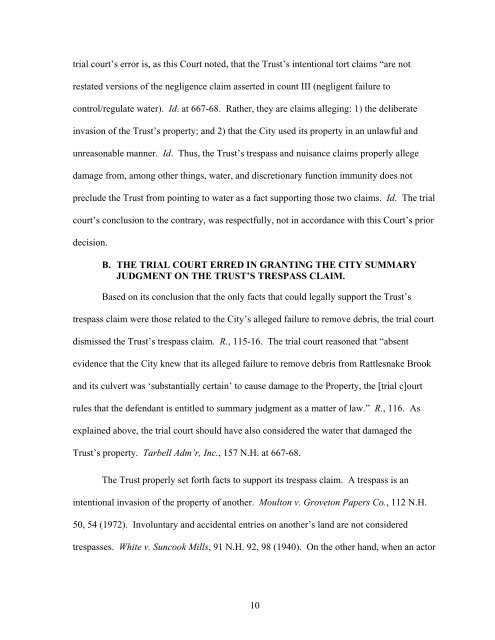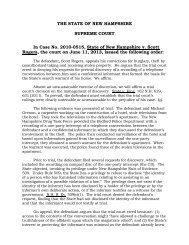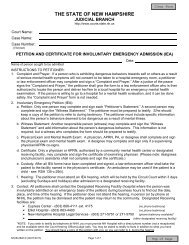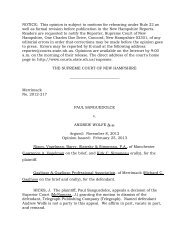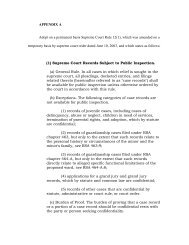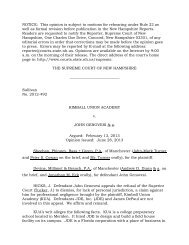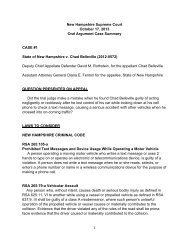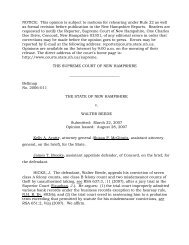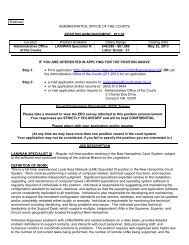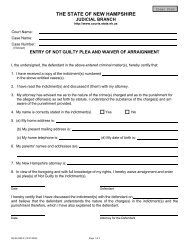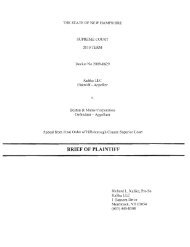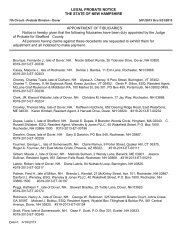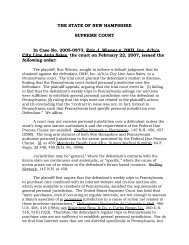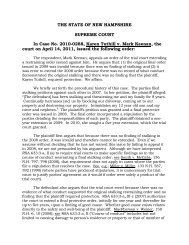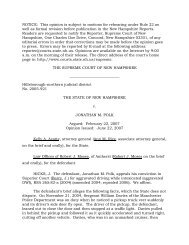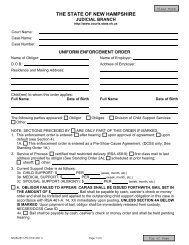THE STATE OF NEW HAMPSHIRE SUPREME COURT
THE STATE OF NEW HAMPSHIRE SUPREME COURT
THE STATE OF NEW HAMPSHIRE SUPREME COURT
Create successful ePaper yourself
Turn your PDF publications into a flip-book with our unique Google optimized e-Paper software.
trial court’s error is, as this Court noted, that the Trust’s intentional tort claims “are not<br />
restated versions of the negligence claim asserted in count III (negligent failure to<br />
control/regulate water). Id. at 667-68. Rather, they are claims alleging: 1) the deliberate<br />
invasion of the Trust’s property; and 2) that the City used its property in an unlawful and<br />
unreasonable manner. Id. Thus, the Trust’s trespass and nuisance claims properly allege<br />
damage from, among other things, water, and discretionary function immunity does not<br />
preclude the Trust from pointing to water as a fact supporting those two claims. Id. The trial<br />
court’s conclusion to the contrary, was respectfully, not in accordance with this Court’s prior<br />
decision.<br />
B. <strong>THE</strong> TRIAL <strong>COURT</strong> ERRED IN GRANTING <strong>THE</strong> CITY SUMMARY<br />
JUDGMENT ON <strong>THE</strong> TRUST’S TRESPASS CLAIM.<br />
Based on its conclusion that the only facts that could legally support the Trust’s<br />
trespass claim were those related to the City’s alleged failure to remove debris, the trial court<br />
dismissed the Trust’s trespass claim. R., 115-16. The trial court reasoned that “absent<br />
evidence that the City knew that its alleged failure to remove debris from Rattlesnake Brook<br />
and its culvert was ‘substantially certain’ to cause damage to the Property, the [trial c]ourt<br />
rules that the defendant is entitled to summary judgment as a matter of law.” R., 116. As<br />
explained above, the trial court should have also considered the water that damaged the<br />
Trust’s property. Tarbell Adm’r, Inc., 157 N.H. at 667-68.<br />
The Trust properly set forth facts to support its trespass claim. A trespass is an<br />
intentional invasion of the property of another. Moulton v. Groveton Papers Co., 112 N.H.<br />
50, 54 (1972). Involuntary and accidental entries on another’s land are not considered<br />
trespasses. White v. Suncook Mills, 91 N.H. 92, 98 (1940). On the other hand, when an actor<br />
10


